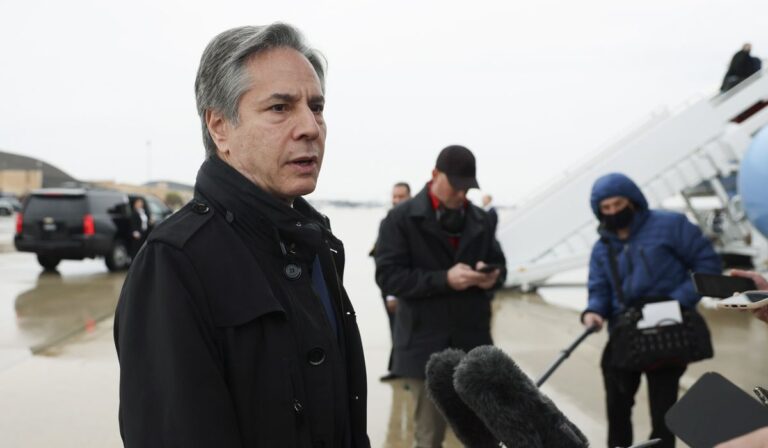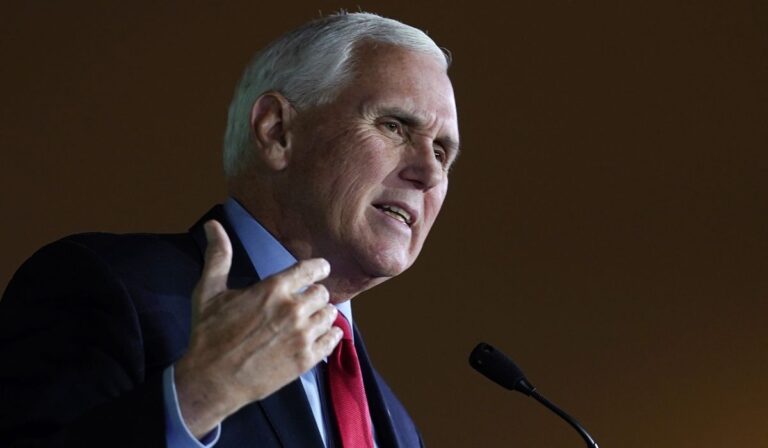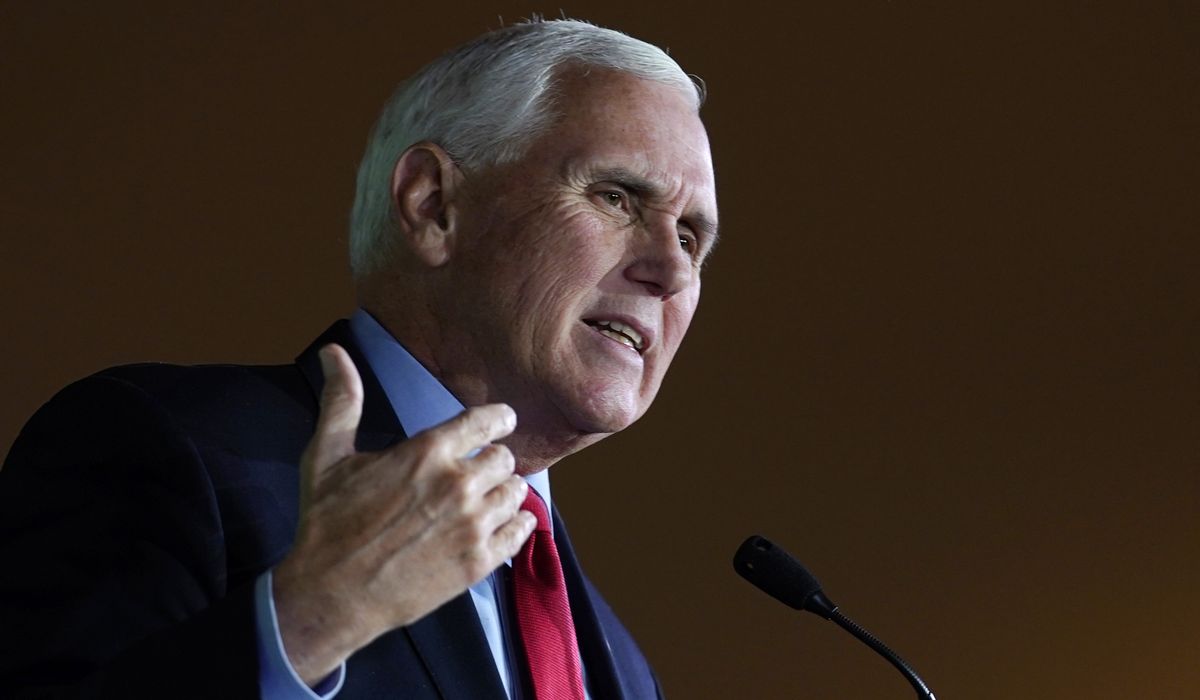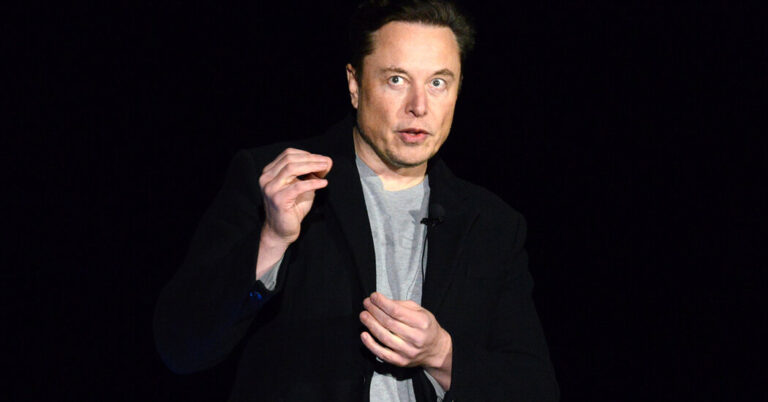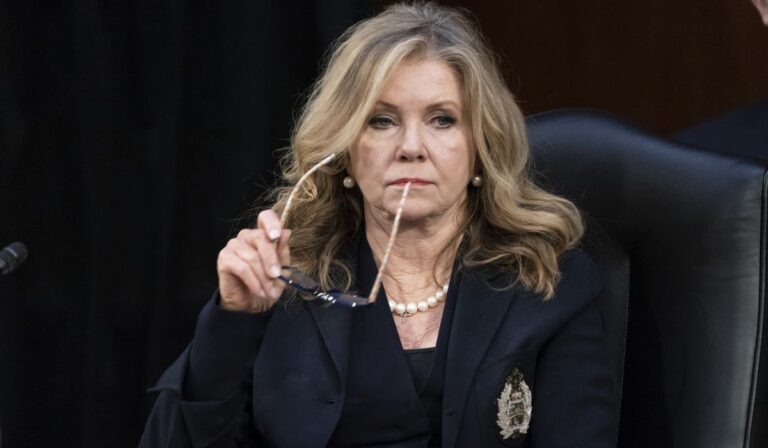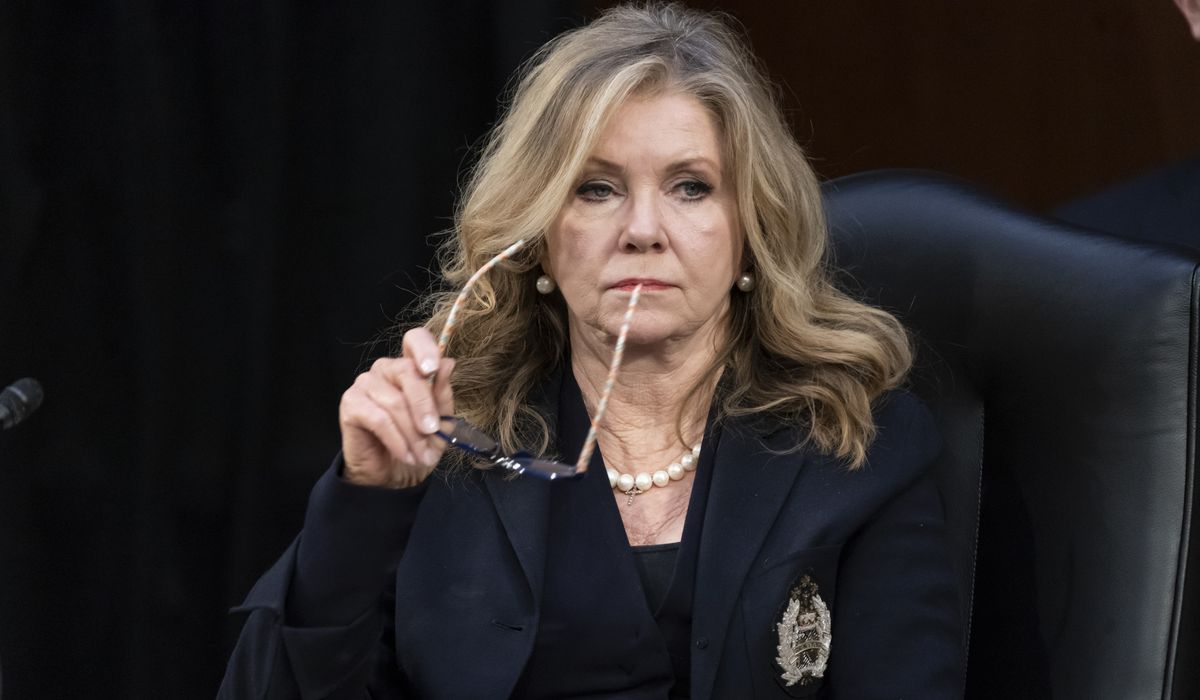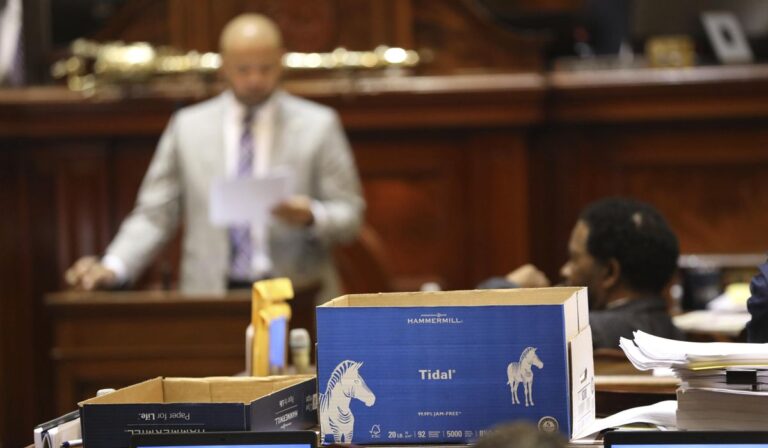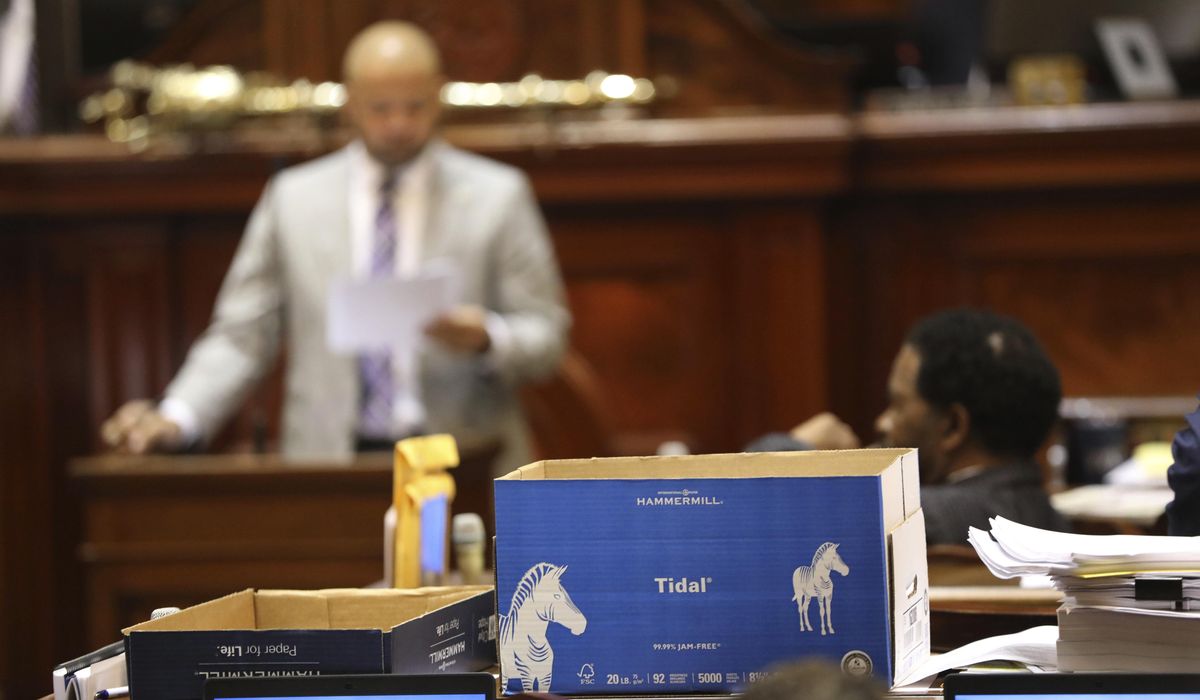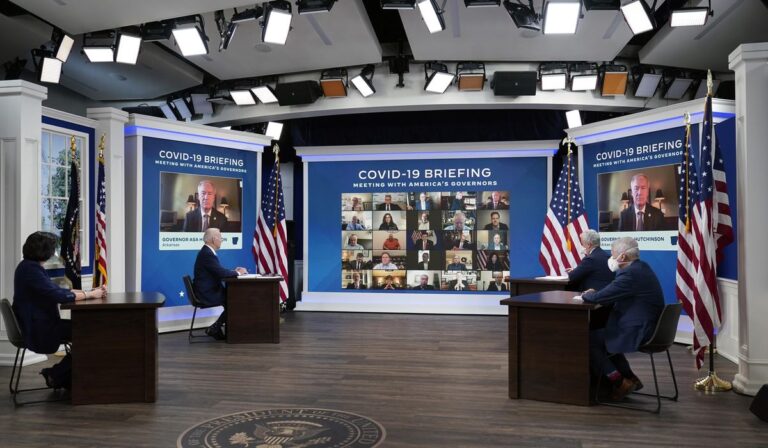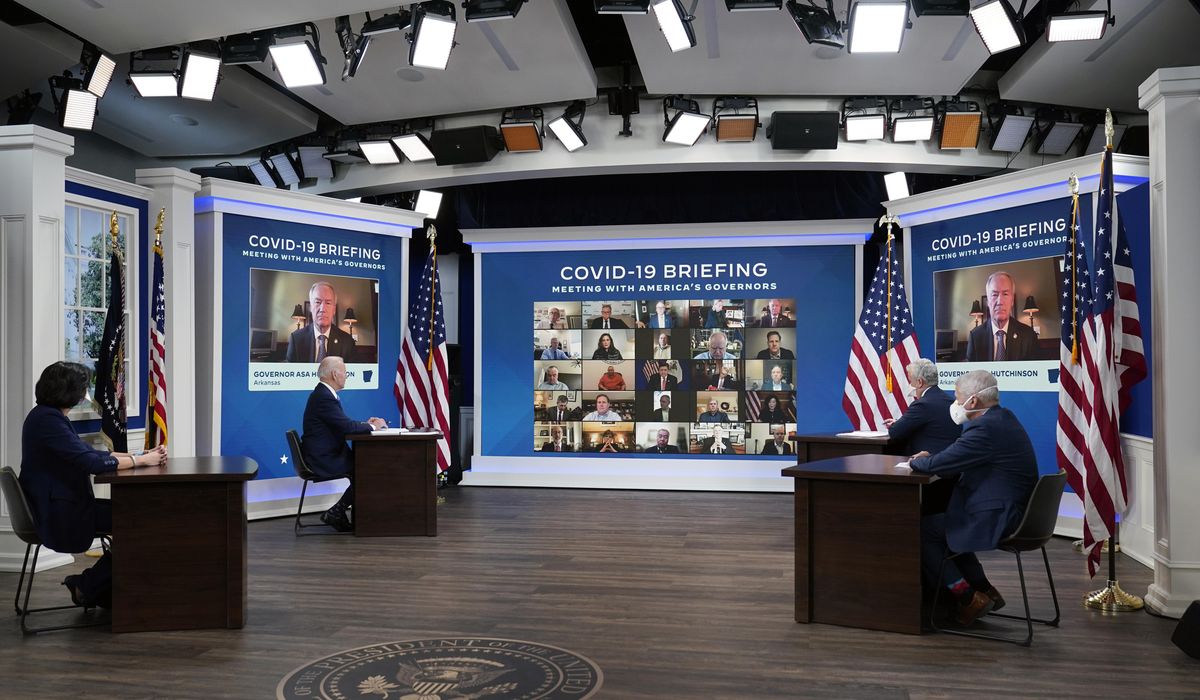BEIJING (AP) — China on Wednesday said images of civilian deaths in the Ukrainian town of Bucha are “deeply disturbing” but that no blame should be apportioned until all facts are known.
Emerging evidence of what appeared to be widespread civilian massacres in the wake of Russian withdrawals from the Kyiv areas may complicate Beijing’s attempts to guide public opinion over the conflict, in which China has refused to criticize Moscow.
China supports all initiatives and measures “conducive to alleviating the humanitarian crisis” in the country, and is “ready to continue to work together with the international community to prevent any harm to civilians,” Foreign Ministry spokesperson Zhao Lijian told reporters at a daily briefing.
“The truth and the cause of the incident must be verified,” Zhao said. “All parties should exercise restraint and avoid unfounded accusations before a conclusion of the investigation is drawn.”
Zhao’s remarks echo those of China‘s ambassador to the United Nations, Zhang Jun, who earlier called for an investigation, also describing the reports and images of civilian deaths in Bucha as “deeply disturbing.”
“The relevant circumstances and specific causes of the incident should be verified and established,” Zhang said in remarks to the Security Council on Tuesday, adding that, “before the full picture is clear, all sides should exercise restraint and avoid unfounded accusations.”
China has called for talks while refusing to criticize Russia. It opposes economic sanctions on Moscow and blames Washington and NATO for provoking the war and fueling the conflict by sending arms to Ukraine.
The entirely ruling Communist Party-controlled media have largely stuck to a pro-Moscow narrative, including repeating Russian disinformation and unfounded conspiracy theories about issues such as alleged American-Ukrainian bioweapons production.
Zhao repeated China‘s objections to sanctions, while accusing the U.S. of having manipulated the situation to “profit from the chaos and make a lot of money.”
“History and reality have proven that sanctions do not bring peace and security, but only bring lose-lose or multiple losses, adding to the already difficult world economy and impacting the existing world economic system,” Zhao said.
The hashtag “China expresses Bucha death incident must be thoroughly investigated” was a trending topic on Weibo, the Chinese version of Twitter, with nearly 30 million views and more than 500 discussions by afternoon Wednesday
Despite the pro-Russian stance of authorities who regularly censor postings, opinions were divided between support for Moscow, demands Russia be held accountable, accusations of untrustworthiness against the West and Ukraine, and calls for an impartial investigation.
“This is merely a play acted out by the Americans and Ukrainian Nazis in an attempt to divert public opinion, but people of the world with eyes and hearts won’t ignore the facts of the U.S. and Ukraine researching bio weapons,” read one posting signed “Understands the Cold War Better Than America.”
The Russian Embassy in Beijing also made use of the platform to reject the accusations, while its Ukrainian counterpart drew attention to “Russian war crimes against civilians in Irpin,” another town where atrocities allegedly occurred.
Prior to the Feb. 24 war, China had dismissed talk of a Russian invasion as “fake news” and U.S. fearmongering. Since then, it has claimed to be holding to an independent, and often contradictory, stance, asserting the sanctity of borders and national sovereignty while refusing to condemn Russian aggression or even use the words “war” and “invasion,” in apparent deference to Moscow.
The Global Times, a nationalistic tabloid published by the Communist Party mouthpiece People’s Daily, sought to balance the competing messages with an editorial Wednesday headlined “’Bucha Incident’ not to be used as pretext for inflaming situation.”
“As long as Russia and Ukraine cannot achieve a cease-fire, humanitarian tragedies will not end,” the paper said.
“However, it is regrettable that after the exposure of the ‘Bucha incident,’ the U.S., the initiator of the Ukraine crisis, has not shown any signs of urging peace and promoting talks, but is ready to exacerbate the Russia-Ukraine tensions and create obstacles to the peace talks between the two sides,” it said.
Copyright © 2022 The Washington Times, LLC.


